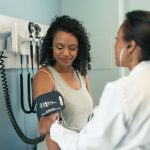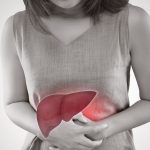What is heatstroke?
Heatstroke is a life threatening condition in which your body overheats and can no longer maintain a healthy temperature. You can avoid heatstroke by taking precautions in very hot weather.
Heatstroke occurs when your body temperature rises from about 37°C to above 40°C. It is sometimes called hyperthermia.
Dehydration and heat exhaustion are milder heat-related illnesses. They can lead to heatstroke if they’re not treated.
Why is heatstroke an emergency?
Heatstroke needs immediate first aid to lower your body temperature as quickly as possible. If not, it can lead to organ damage and death.
The risk of death increases the hotter you get and the longer you are overheated.
Why might I get heatstroke?
Heatstroke is caused by prolonged exposure to heat. It can occur when your body absorbs more heat than it can get rid of by sweating. You can get heatstroke indoors or outdoors. It is more likely to occur in hot, humid weather.
You can get heatstroke if you work or exercise in hot conditions without good air flow and if you don’t drink enough water.
You are at higher risk if you are:
- over 75 years old, or very young
- pregnant or breastfeeding
- overweight
- not physically fit
- homeless or isolated
- wearing excess clothing
- affected by a chronic health condition or an infection
- taking medicines that cause dryness or make you sweat less
What are the symptoms of heatstroke?
If you have heatstroke, you will usually not be sweating. Your skin may be red, hot and dry.
Heat exhaustion is a milder heat-related illness that can lead to heatstroke if not treated, so it’s important to recognise the symptoms early. If you have heat exhaustion, you will usually be sweating a lot, and have pale, cool, damp skin.
Other symptoms of heat exhaustion include:
- dizziness and weakness
- headache
- nausea or vomiting
- rapid pulse and fast, shallow breathing
- muscle cramps (known as heat cramps)
- fainting
- feeling restless and anxious
- heat rash
If heat exhaustion turns into heatstroke, you may notice these additional symptoms:
- sudden rise in body temperature
- dry, swollen tongue
- intense thirst
- slurred speech
- problems coordinating movements
- aggressive or strange behaviour
- seizures
- confusion and loss of consciousness
While you are waiting for the ambulance, try to cool them down in any way you can.
- Give them sips of cool fluid if they are conscious.
- Lay them in a cool shady place.
- Remove excess clothing.
- Sponge or spray them with cool water or cover them with wet towels or clothing and fan their damp skin.
- Put them in cool water or a cool shower.
- Place cold packs on their cheeks, palms and soles.
If they are unconscious, place them on their side with their mouth down and their chin up. You may need to do CPR.
Do not give aspirin, ibuprofen or paracetamol to someone with heatstroke.
What should I do if I have heat exhaustion?
There are steps you can take to manage heat exhaustion, and avoid the complications of heatstroke.
- Find a cool place to rest.
- Drink cool water or a rehydration drink. Avoid caffeine and alcohol.
- Take off excess clothing.
- Have a cool shower or use cold packs.
- Use a fan or air conditioning.
How can I prevent heatstroke?
In hot weather:
- Drink plenty of water, even if you’re not thirsty. Avoid alcohol and hot or sugary drinks.
- Keep cool — try to avoid direct sun and wear lightweight, loose cotton clothing.
- If you go out, try to go before 11am or after 5pm, wear a hat and take water.
- Keep your house cool — close windows and curtains during the day and keep them open at night. Use fans or air conditioning.
- Have a plan — know who to call for help and ask your doctor what to do if you have any health conditions.
You can also take steps to prevent other people getting heatstroke:
- When it’s hot, visit or phone friends, family and neighbours who are at risk, and check they’re ok.
- Keep children cool and give them lots to drink.
- Ensure pets have plenty of water and shade.
- Never leave children or animals alone in a car, even with the air conditioning on or windows open.



